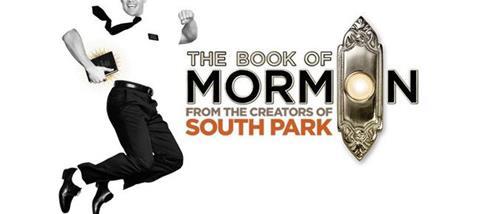
Hello! My name is Elder Jamie and I would like to tell you about the most amazing musical…
As Premier Christianity’s resident swear-a-tron, it was only a matter of time before I went to see The Book of Mormon. The musical, penned by the brains behind Team America: World Police and South Park, has drawn plenty of criticism from religious groups since popping up in the West End a couple of years ago… and I can see why.
If you don’t like bad language, this isn’t for you. If you don’t like people laughing at your belief system, this isn’t for you. Seriously, if you don’t like bad language, just… don’t-even-bother. But, anything that is going to take a decent look at Western, Judeo-Christian religions with such a large audience has to be worth engaging with (plus someone got me tickets for my birthday and I’d wanted to go for ages). So what did I learn?
Its critique of Western faith is painful (and funny) because its true
The story centres around two new Mormon missionaries (Elder Price and Elder Cunningham) who are sent to Uganda to convert as many people to The Church of Jesus Christ of Latter-Day Saints as possible. Unsurprisingly their overly-rehearsed presentations, practised in suburban Salt Lake City, don’t quite cut the mustard – these people don’t even have doorbells!
Price and Cunningham are forced to accept that the gospel (or their version of it at least) doesn’t always fit nicely into our word-for-word spiels, instead, it has to be re-contexualised, it needs to be embedded in the culture it’s being shared in. If our gospel doesn’t offer a hope and answer for FGM and AIDS, then what’s the point in it?
The second half of the show revolves around Cunningham’s re-contextualisation of the gospel for Uganda – okay, it ends up invoking Star Trek, The Hobbit and stories about diarrhea, but it works. Nevertheless, in the midst of his reshaping still lies the central story at the heart of the (original) Book of Mormon – that a 19th century treasure hunter called Joseph Smith claimed to have discovered a new revelation of Jesus appearing to South American tribes inscribed on golden plates which only he could translate, and became the self-appointed prophet of a new religious movement (and yes, that whole story comes in for a lot of ridicule along the way).
In the end, the musical clearly has no time for lazy, white westerners turning up on the other side of the world with a bag full of Bibles but no practical hope for the disease, poverty and violence that dominates many of these places. Buried beneath the knob gags, gay jokes and swear words is a punch in the gut for lazy mission trips.
Did I mention its pretty offensive?
I’m not easily offended. In fact, it’s pretty hard to offend me, but there were moments in The Book of Mormon that got pretty close, most notably with the song ‘Hasa Diga Eebowai’. The song starts off as a pastiche of the happy-go-lucky response to disaster characterised by ‘Hakuna Matata’ but ends in a community flipping the middle finger and screaming four-letter words at God.
The language is incredibly coarse, the sentiment is shocking… and to be honest, the shock factor will be hilarious to many, albeit rather uncomfortable for those of us whose conversations with the Almighty tend to be a little more civil. Similarly, ‘Baptise me’ takes the familiar aquatic rite of passage and sexualises it to the max. The initial gag is funny, but as the song continued so did my sense of unease.
The question is what to do with that level of offense? The reality is that in our Western context, Christianity (and any similar belief system) is going to be poked at and shot down. We hold a position of power and influence in society, and if we’re going to accept that, we have to take the barbs that come with it. If Have I Got News For You always deferred to those in authority, it would be an incredibly boring show. Our response here is crucial; do we ignore it? Get angry? (you may recall how many Christians responded to the similarly shocking Jerry Springer the Opera ten years ago). Or enter into dialogue and see what we can learn from them?
The Mormon Church itself has a lesson for us here. The Latter Day Saints' activity around the musical is stunning: they stand outside the musical after the show talking to punters, they advertise on the Tube next to posters for the musical. They act with grace, they laugh at themselves, even when other people are laughing at them. Maybe it’s time for us to do the same.
To receive a free copy of Premier Christianity magazine click here




























